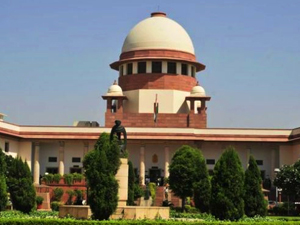Supreme Court's guidelines for rape trials Back

The Supreme Court of India laid down guidelines for the behaviour of defense lawyers in rape trials in a 1996 judgement. Unfortunately, these guidelines are not strictly followed today.
Below are a few excerpts from the judgement:
- The courts should examine the broader probabilities of a [rape] case and not get swayed by minor contradictions or insignificant discrepancies in the statement of prosecutrix.
- The court should not sit as a silent spectator while the victim of crime is being cross-examined by the defence. It must effectively control the recording of evidence.
- While every latitude should be given to the accused to test the veracity of the prosecutrix and the credibility of her version through cross-examination, the court must also ensure that cross-examination is not made as a means of harassment or causing humiliation to the victim of crime.
- It [an in-camera trial] would enable the victim of crime to be a little comfortable and answer the questions with greater ease in not too familiar surroundings. The improved quality of her evidence would assist the courts in arriving at the truth and sifting truth from falsehood.